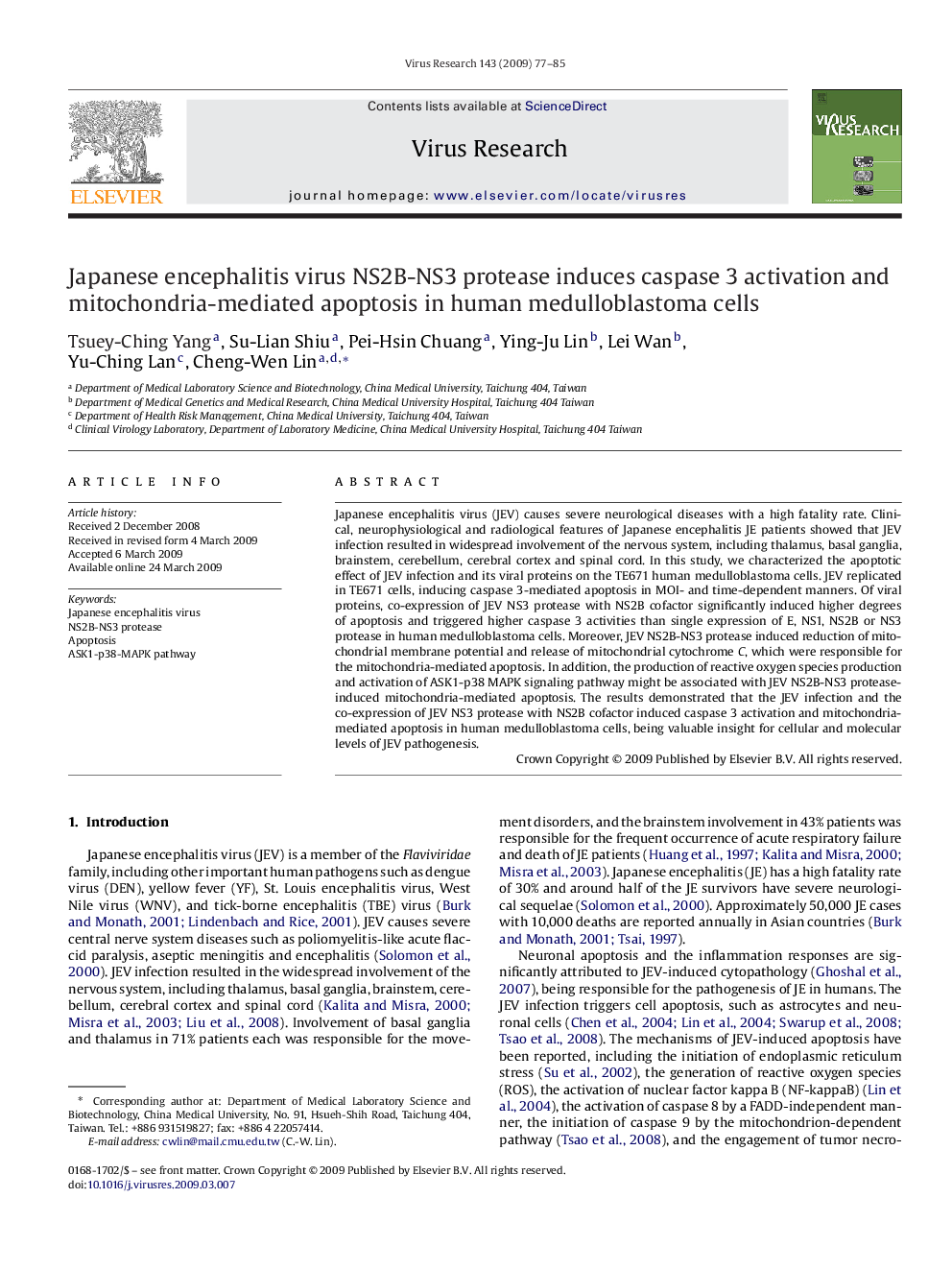| Article ID | Journal | Published Year | Pages | File Type |
|---|---|---|---|---|
| 3430025 | Virus Research | 2009 | 9 Pages |
Japanese encephalitis virus (JEV) causes severe neurological diseases with a high fatality rate. Clinical, neurophysiological and radiological features of Japanese encephalitis JE patients showed that JEV infection resulted in widespread involvement of the nervous system, including thalamus, basal ganglia, brainstem, cerebellum, cerebral cortex and spinal cord. In this study, we characterized the apoptotic effect of JEV infection and its viral proteins on the TE671 human medulloblastoma cells. JEV replicated in TE671 cells, inducing caspase 3-mediated apoptosis in MOI- and time-dependent manners. Of viral proteins, co-expression of JEV NS3 protease with NS2B cofactor significantly induced higher degrees of apoptosis and triggered higher caspase 3 activities than single expression of E, NS1, NS2B or NS3 protease in human medulloblastoma cells. Moreover, JEV NS2B-NS3 protease induced reduction of mitochondrial membrane potential and release of mitochondrial cytochrome C, which were responsible for the mitochondria-mediated apoptosis. In addition, the production of reactive oxygen species production and activation of ASK1-p38 MAPK signaling pathway might be associated with JEV NS2B-NS3 protease-induced mitochondria-mediated apoptosis. The results demonstrated that the JEV infection and the co-expression of JEV NS3 protease with NS2B cofactor induced caspase 3 activation and mitochondria-mediated apoptosis in human medulloblastoma cells, being valuable insight for cellular and molecular levels of JEV pathogenesis.
